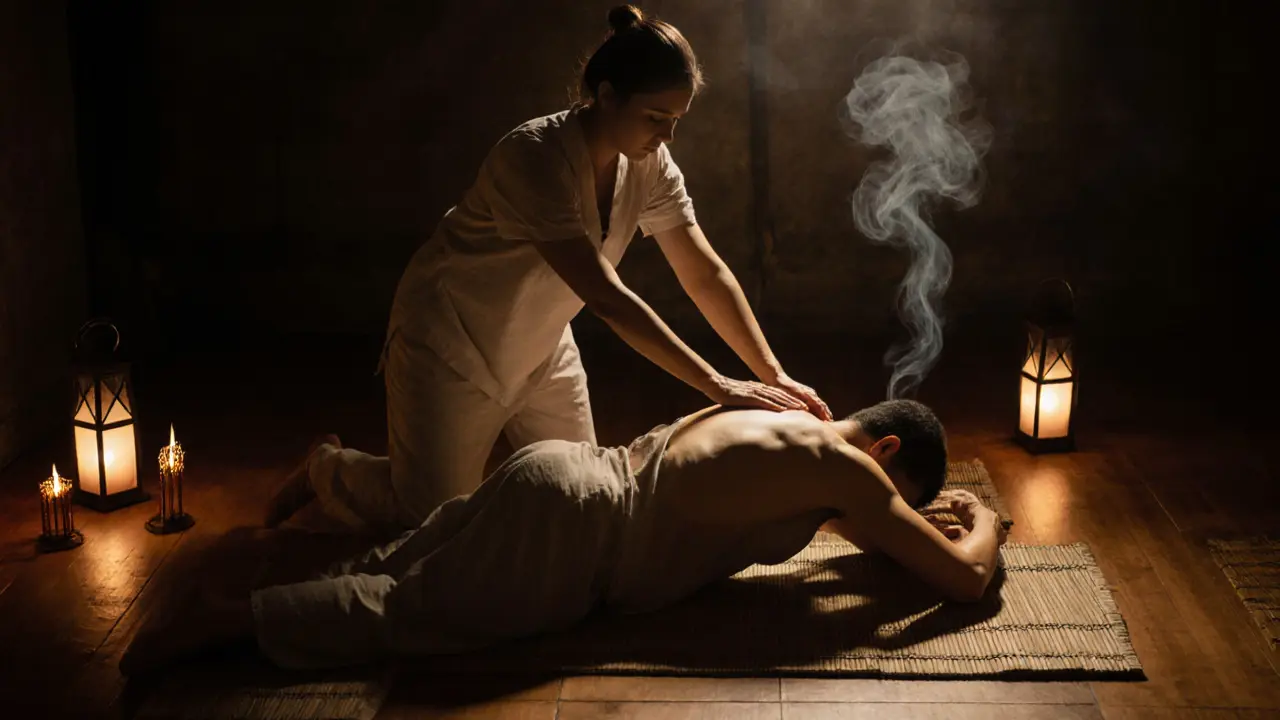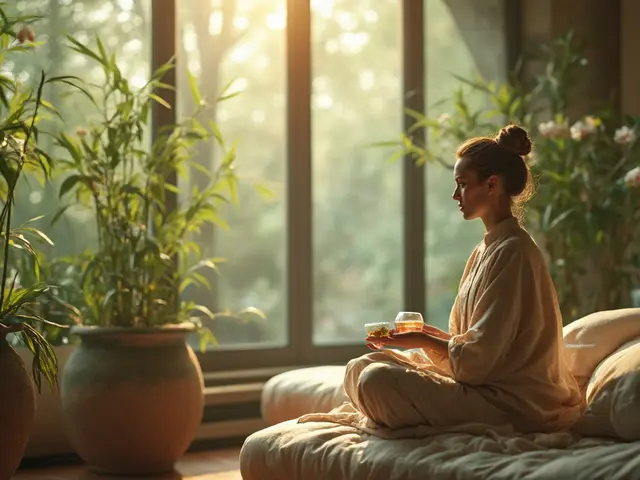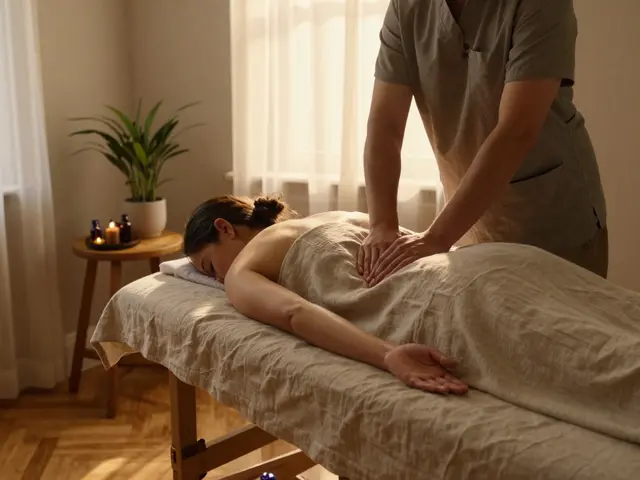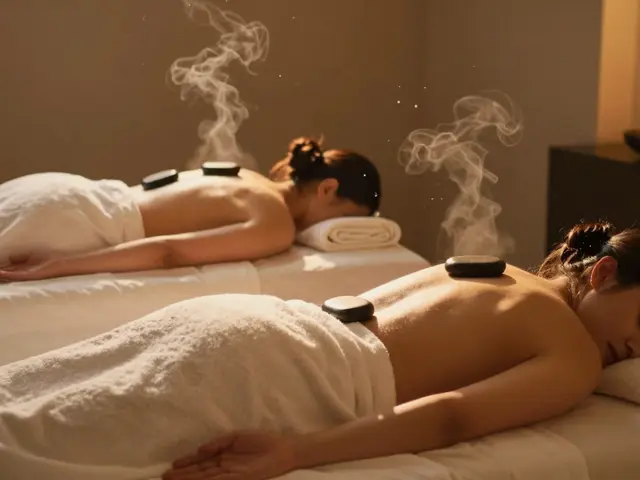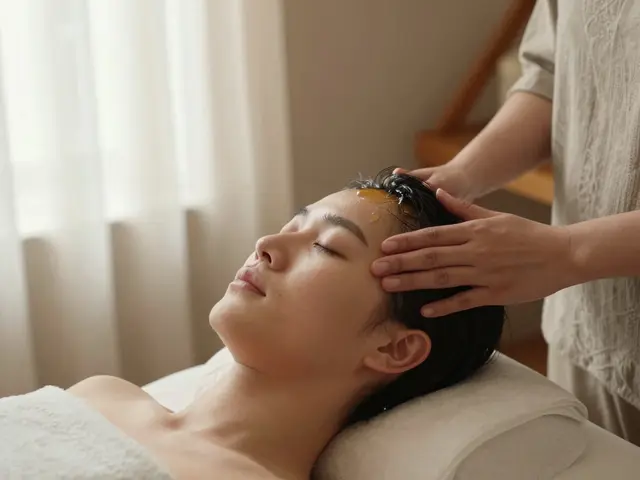Walking into an Asian massage studio in London isn’t just about getting a rubdown. It’s about stepping into a quiet space where tension melts, breath slows, and your body remembers how to relax. For years, Asian massage has been misunderstood-often lumped in with shady services or reduced to a quick back rub. But the truth? In London, there’s a quiet revolution happening in back alleys and quiet side streets, where traditional techniques passed down for generations are being practiced with care, precision, and deep respect.
What Makes Asian Massage Different?
Asian massage isn’t one thing. It’s a family of practices, each with its own roots, rhythms, and rules. Thai massage uses rhythmic compression and yoga-like stretches. Japanese shiatsu applies pressure along energy lines called meridians. Chinese tuina works with the body’s qi, or life energy, using finger pressure and circular motions. Korean hand massage focuses on reflexology points. Even the oils used matter-sesame, camphor, or sandalwood aren’t just for scent; they’re chosen for their warming, calming, or anti-inflammatory properties.
Unlike Swedish massage, which glides over the skin, Asian massage often happens through clothing. You don’t need to undress. You sit on a mat, lie on a low table, or even sit in a chair. The therapist doesn’t just move your muscles-they read your body. A tight shoulder? They’ll trace it back to your neck, your jaw, even your breath. A heavy feeling in your legs? They’ll check your feet, your digestion, your sleep. It’s holistic. It’s not just about the pain you feel-it’s about why you feel it.
Where to Find Real Asian Massage in London
London has hundreds of places advertising "Asian massage." But not all are created equal. The best ones don’t have flashy websites or Instagram influencers posing on massage tables. They’re often tucked into basement units in Southwark, above noodle shops in Chinatown, or in quiet corners of Walthamstow and Croydon.
Look for places where the therapist has trained in Asia-Thailand, Japan, China, or Korea. Ask if they studied under a master. Ask how long they’ve been practicing. A good therapist will tell you their lineage. One in Brixton learned Thai massage from a monk in Chiang Mai. Another in Camden trained for five years in Kyoto before moving to London. These aren’t just jobs-they’re callings.
Check reviews for mentions of "deep pressure," "energy work," or "felt different after." Avoid places that say "happy ending" or use terms like "romantic" or "couples only." Real Asian massage is about healing, not fantasy.
What to Expect During Your First Session
When you walk in, you’ll be offered tea-usually jasmine or ginger. No rush. No forms to fill out. The therapist will ask you a few simple questions: Where do you carry stress? Do you sleep well? Any injuries? Then they’ll leave you to change into loose clothing (they’ll provide it) or stay in your own clothes, whichever you prefer.
The session starts slow. Gentle pressure on your back, then your shoulders. You might feel a pinch, a warmth, a strange tingling. That’s normal. It’s not pain-it’s your body releasing blockages. In Thai massage, you’ll be gently stretched like a yoga pose. In shiatsu, you might feel pressure on your lower abdomen or the inside of your wrist. It doesn’t always feel good in the moment-but afterward, you’ll feel lighter.
Sessions last 60 to 90 minutes. Most cost between £50 and £90. That’s more than a high street spa, but you’re paying for skill, not ambiance. No candlelit rooms with piped-in ocean sounds. Just quiet, focused hands and deep, intentional work.
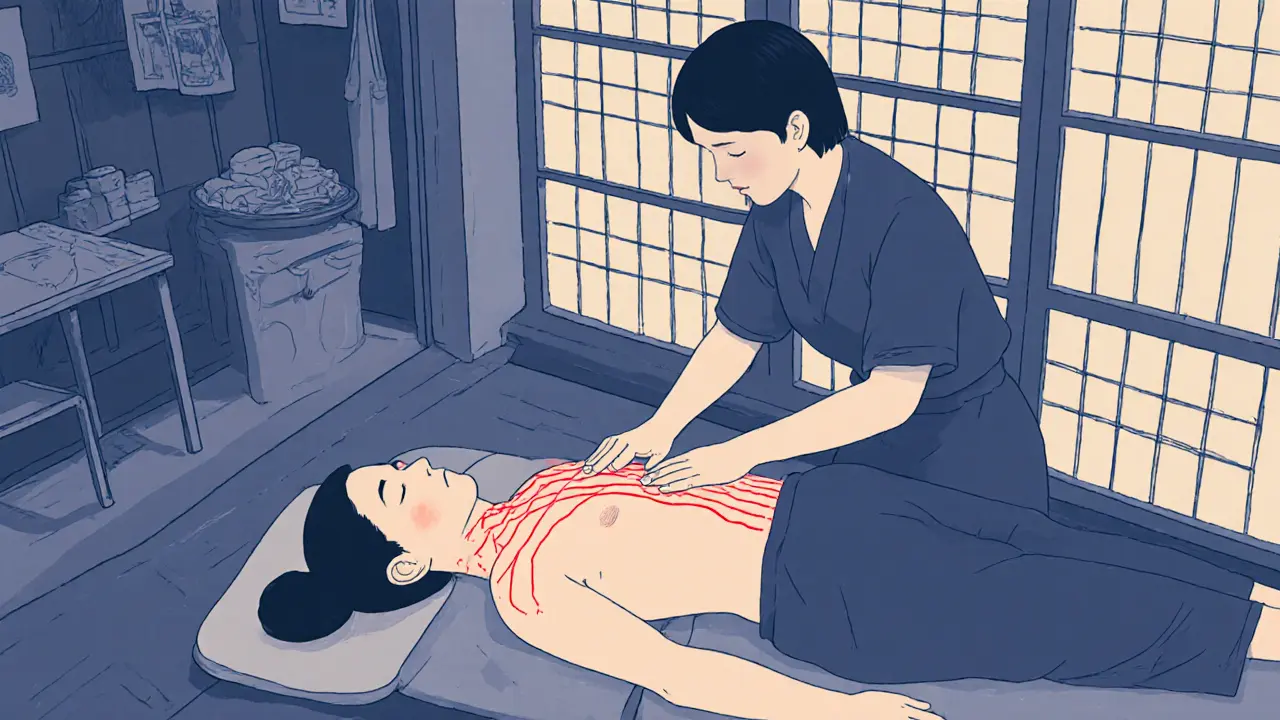
Who Benefits Most?
People who sit at desks all day? They feel it in their necks and lower backs. Asian massage fixes that. People with chronic stress? It quiets the nervous system. Athletes? It speeds recovery. Even people with anxiety or insomnia report better sleep after just two sessions.
One woman in Hackney, a nurse who works 12-hour shifts, started coming every three weeks. She told me: "I used to wake up with my shoulders in my ears. After three Thai sessions, I didn’t need my painkillers anymore. I just breathe deeper now."
Men and women, young and old, all come. It’s not a luxury. It’s maintenance-like changing your car’s oil. Your body doesn’t get a manual. But this does.
What to Avoid
Not every place that says "Asian massage" is legit. Some are fronts. Others are run by people who took a weekend course and now charge £100 an hour. Red flags: no therapist name listed, no photos of the space, no clear pricing, no mention of training or origin.
Also avoid places that pressure you into packages. "Buy five, get one free" is a sales tactic, not a healing strategy. One session might be enough to show you if it’s right for you. Don’t be rushed.
And if someone tries to touch you in a way that feels inappropriate? Say no. Walk out. No apology needed. Real Asian massage respects boundaries. It doesn’t cross them.

How Often Should You Go?
There’s no rule. But most people who stick with it come every 2 to 4 weeks. That’s enough to keep tension from building back up. If you’re dealing with an injury or high stress, once a week for a month helps reset your system. After that, maintenance is fine.
Think of it like brushing your teeth. You don’t wait until your gums bleed. You do it regularly because you know what happens if you don’t.
Why It Works When Other Therapies Don’t
Western massage often treats symptoms. Asian massage treats the system. A headache might come from a stiff neck, yes-but also from poor digestion, suppressed emotions, or shallow breathing. A good Asian therapist doesn’t just rub your temples. They’ll ask if you’ve been holding your breath during meetings. They’ll check your tongue. They’ll notice if your feet are cold.
It’s not magic. It’s observation. It’s experience. It’s centuries of accumulated knowledge, passed down through hands, not textbooks.
Final Thought: It’s Not a Treat. It’s a Return.
Asian massage in London isn’t about escaping your life. It’s about coming back to it-with more ease, more clarity, more presence. You walk in tired, distracted, overwhelmed. You walk out quieter. Lighter. Like you’ve remembered how to be in your own body.
It doesn’t cost a fortune. It doesn’t require a vacation. Just a quiet hour, an open mind, and the courage to let someone else hold space for you.
Try it once. Not because it’s trendy. But because you deserve to feel whole again.
Is Asian massage in London safe?
Yes, when you choose a licensed, reputable studio. Real Asian massage therapists in London are trained in traditional techniques and follow strict hygiene standards. They work within professional boundaries and never engage in inappropriate behavior. Always check reviews, ask about training, and trust your instincts. If something feels off, leave.
Do I need to take my clothes off for Asian massage?
No. Most Asian massage styles-like Thai, shiatsu, and tuina-are done through clothing. You’ll be given loose, comfortable garments to wear, or you can stay in your own soft clothes. There’s no need to undress, and no pressure to do so. If a place asks you to, it’s not a traditional Asian massage studio.
How is Asian massage different from a regular spa massage?
Regular spa massages, like Swedish or aromatherapy, focus on relaxation through long strokes and oils. Asian massage is more interactive and holistic. It uses pressure, stretching, and energy work to address tension patterns linked to posture, stress, and even digestion. It’s less about pampering and more about restoring balance.
Can Asian massage help with chronic pain?
Many people with chronic back pain, neck stiffness, or headaches find relief through Asian massage, especially Thai and tuina. These styles target the root causes-tight muscles, poor alignment, energy blockages-not just the pain spots. It’s not a cure, but regular sessions can reduce frequency and intensity over time.
Are there any side effects?
Sometimes you might feel sore for a day after, especially if you’ve had deep work. Some people feel emotional or unusually tired-this is normal as your body releases stored tension. Drink water, rest, and avoid intense exercise afterward. If you feel dizzy, nauseous, or in real pain, contact your therapist. Serious side effects are extremely rare with trained professionals.
What should I wear to my session?
Wear loose, comfortable clothing-like sweatpants and a T-shirt. Avoid tight jeans, belts, or restrictive fabrics. Most studios provide clothing if you prefer, but bringing your own is fine. The goal is to move freely without distraction.
How long does a session last?
Most sessions last between 60 and 90 minutes. Some places offer 30-minute express sessions, but these are better for targeted areas like shoulders or feet. For full-body balance, aim for at least 60 minutes. The first session may include a short consultation, so plan for 75 minutes total.
Is Asian massage covered by health insurance?
Generally, no. Most UK health insurance plans don’t cover massage therapy unless it’s prescribed by a doctor for a specific condition. Some private plans or workplace wellness programs might offer partial reimbursement-check with your provider. It’s usually paid out of pocket, but many find the cost worth the long-term relief.
Can I get Asian massage if I’m pregnant?
Yes, but only with a therapist trained in prenatal Asian massage. Not all practitioners are equipped for this. Thai massage, for example, can be adapted safely during pregnancy with modified positions and gentle pressure. Always inform your therapist upfront. Avoid deep abdominal work and strong pressure on the lower back.
How do I find a good Asian massage therapist in London?
Look for studios that list the therapist’s training background-especially if they studied in Thailand, Japan, or China. Read reviews that mention specific techniques (like "shiatsu" or "Thai stretching") rather than just "felt good." Ask if you can meet the therapist before booking. A good one will answer questions calmly and without pressure. Avoid places with no website, no names, or overly sexualized language.
